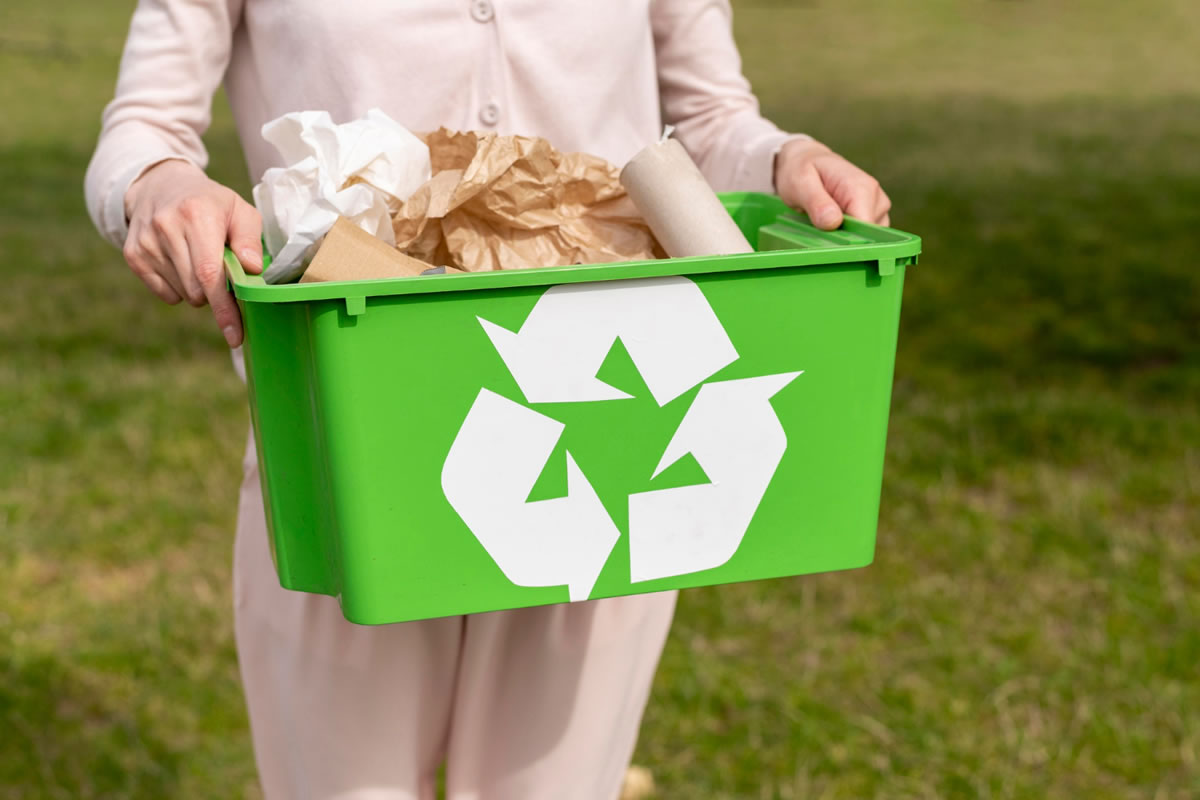Recycling is a critical step in protecting the environment, reducing waste, and conserving resources. While the concept might seem complex to some, incorporating recycling habits into your daily routine can be straightforward and impactful. This article outlines easy and practical ways to start recycling at home, emphasizing simplicity and sustainability.
Understanding the Basics of Recycling
Recycling is the process of converting waste materials into new products. It helps reduce landfill waste, save energy, and decrease greenhouse gas emissions. By recycling materials like paper, plastic, glass, and metal, you contribute to a cleaner planet. However, the first step is to understand what can and cannot be recycled in your area.
- Research Local Recycling Guidelines
Many communities have specific recycling rules. Check with your local waste management service to learn what materials are accepted. Some areas recycle plastics, while others may focus on glass or paper. - Know the Recycling Symbols
Familiarize yourself with recycling symbols on packaging. Numbers inside the triangle (from 1 to 7) indicate the type of plastic and whether it’s recyclable in your area.
Simple Steps to Start Recycling at Home
- Set Up a Recycling Station
Create a designated recycling area in your home. Use labeled bins for different materials like paper, plastics, glass, and metal. Place these bins in convenient locations, such as the kitchen or garage, to encourage use. - Separate Your Waste
Sort your waste daily. Keep recyclables clean and free of food residue to prevent contamination. For example, rinse cans and bottles before placing them in the recycling bin. - Reduce Before You Recycle
Reduce waste by avoiding single-use items. Choose reusable alternatives like cloth shopping bags, stainless steel water bottles, and washable food containers. The less waste you produce, the less you need to recycle. - Compost Organic Waste
Start a compost bin for food scraps and yard waste. Composting reduces organic waste sent to landfills and creates nutrient-rich soil for gardening. - Reuse Items Whenever Possible
Before tossing items, think about how they can be reused. Glass jars can store food, while old clothes can be repurposed into cleaning rags.
Recycling Specific Materials
- Plastic
- Types: Bottles, containers, and packaging.
- Tips: Rinse thoroughly and remove caps or labels if required by local rules.
- Paper and Cardboard
- Types: Newspapers, magazines, office paper, and cardboard boxes.
- Tips: Flatten cardboard boxes to save space and ensure items are dry.
- Glass
- Types: Bottles, jars, and other glass containers.
- Tips: Rinse out residues and separate by color if required.
- Metal
- Types: Aluminum cans, tin cans, and foil.
- Tips: Crush cans to save space and clean thoroughly.
Creative Ways to Incorporate Recycling
- DIY Projects
Turn recyclable materials into crafts or functional items. For example, use wine bottles as vases or old magazines for decoupage projects. - Organize a Family Recycling Challenge
Make recycling a fun activity by challenging family members to recycle as much as possible. Keep track of progress and celebrate milestones. - Educational Activities for Kids
Teach children about recycling through games, books, or videos. Involve them in sorting and reusing items to instill lifelong habits.
The Importance of Reducing Contamination
Contamination is one of the biggest challenges in recycling. Non-recyclable items or improperly prepared materials can render entire batches of recyclables unusable. Here are some tips to avoid contamination:
- Do not place greasy pizza boxes or dirty containers in the recycling bin.
- Avoid putting plastic bags in the recycling bin unless accepted by your local program.
- Remove food waste, liquids, and non-recyclable items from recyclables.
Building a Sustainable Lifestyle
Recycling is just one part of a sustainable lifestyle. Pair recycling with other eco-friendly habits to maximize your impact:
- Buy Recycled Products
Support the recycling loop by purchasing products made from recycled materials. Look for labels that specify recycled content. - Adopt Minimalist Practices
Reduce consumption by choosing quality over quantity. Buy only what you need and avoid unnecessary packaging. - Conserve Energy and Water
Use energy-efficient appliances and practice water conservation to reduce your overall environmental footprint.
Involving Your Community
- Participate in Local Recycling Programs
Join community recycling initiatives or organize events to spread awareness about recycling. - Share Knowledge
Educate friends and neighbors about the benefits of recycling and how to do it correctly. - Advocate for Better Recycling Infrastructure
Encourage local authorities to invest in recycling programs and facilities to make recycling more accessible.
Tracking Your Progress
Keep track of your recycling efforts to stay motivated. Monitor how much waste you divert from landfills each month. Use apps or journals to record your progress and set new goals.
Common Myths About Recycling
- “Recycling Isn’t Worth the Effort”
Recycling saves energy, reduces pollution, and conserves resources. Every small action contributes to a larger positive impact. - “All Plastics Are Recyclable”
Not all plastics can be recycled. Check local guidelines and avoid products made from hard-to-recycle plastics. - “Recycling Costs More Than It Saves”
While initial infrastructure costs exist, recycling ultimately saves money by reducing landfill needs and conserving raw materials.
Recycling at home doesn’t have to be complicated. By taking small, simple actions, you can make a big difference for the environment. Setting up a recycling station, separating waste, composting, and reducing consumption are all manageable steps toward a sustainable lifestyle. Educating yourself and your community about recycling can amplify your impact, paving the way for a cleaner, healthier planet for future generations.
Recycling is more than just a habit—it’s a commitment to living responsibly and leaving a positive legacy for the world. Start today, and take the first step toward a greener future.

